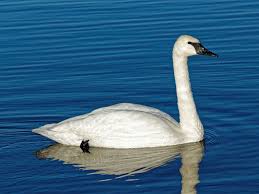 “A rose by any other name would would smell as sweet.” Or the well-known, “If it walks like a duck, and quacks like a duck, it must be a duck.” And how would our perception be swayed if we changed the name of “Rape and Pillage Project Management Corporation” to “Strawberry Fields Forever ULC”?
“A rose by any other name would would smell as sweet.” Or the well-known, “If it walks like a duck, and quacks like a duck, it must be a duck.” And how would our perception be swayed if we changed the name of “Rape and Pillage Project Management Corporation” to “Strawberry Fields Forever ULC”?
Now, if a company is called Greenfields Farms Lid. you would be forgiven if you thought it was an organization devoted to farming and sustainable food production. Alas, this fictional company is owned by an ambitious developer and is a landholding and development company with no attachment at all to agricultural endeavours. If it looks like a scam, and it hides in doublespeak like a scam, it must be a scam.
The owners of Greenfields Farms Ltd. are obviously very successful and wealthy businesspersons, able to donate tens, even hundreds of thousands of dollars to local politicians and charitable causes. They may even have their family names on medical centres or libraries or food banks for at risk families. These charitable endeavours would have cost millions, expenses that , fortunately for the philanthropic developer, can often be claimed for tax breaks.
When you hear a politician suspected of being too close to a wealthy developer say, “Mr. Doofensmertz makes financial donations to all political parties, and has contributed generously to our community’s charities and community groups, as well as to private political fundraising events.” Why, when we hear this, we’re more than happy to stop our protests against Doofensmertz and Company’s plan to clear-cut our heritage forests.
When you look up Greenfields Farms Ltd., or any similar greenwashing company, on Google, it’s AI will tell you the “family” who runs the company will often be listed as “Philanthropists and Developers” … go ahead, try the search on any company you may suspect is pulling the wool over your community’s eyes.
The deceptive headline would read: “Ms. Flim-Flam, a philanthropist and developer, denies any allegations that she has been bribing public officials. ‘I donate equally to all political parties,’ declared Ms. Flim-Flam
Note that “philanthropist” comes first in that descriptor. It creates a halo of goodness around the negative traits often associated with developers and their numbered or quaintly named companies. I confess, I have never used Google AI before so it was fascinating how quickly it cut through the BS (much like Prime Minister Mark Carney’s speech in Davos) and informed me with cool robotic logic that:
“Philanthropy can act as a cover for ill-gotten wealth when it is used strategically to sanitize a donor’s reputation, shield assets from taxation, or exert undue influence to protect the immoral or illegal business practices that generated the wealth in the first place. This phenomenon, often referred to as “reputation laundering” or “impact washing,” allows individuals to appear benevolent while obscuring the source of their funds.“
I was shocked! How could AI so coldly smear some developers and their philanthropic gifts with such allegations of impact washing and ways of obscuring the sources and amounts of their wealth. Shame! It’s a good thing none of the politicians or developers operating in our little Town are guilty of reputation laundering.
However, as my old Dad used to say, “Son, sometimes when it looks like a cat, it’s really a skunk.” And if it smells like a corpse flower, it’s probably not a rose.
The way I see it.
*****
*image, fittingly, from Maxwell P. Dunne Funeral Services
 This is the face of Donald’s Board of Peace.
This is the face of Donald’s Board of Peace.

 “A rose by any other name would would smell as sweet.” Or the well-known, “If it walks like a duck, and quacks like a duck, it must be a duck.” And how would our perception be swayed if we changed the name of “Rape and Pillage Project Management Corporation” to “Strawberry Fields Forever ULC”?
“A rose by any other name would would smell as sweet.” Or the well-known, “If it walks like a duck, and quacks like a duck, it must be a duck.” And how would our perception be swayed if we changed the name of “Rape and Pillage Project Management Corporation” to “Strawberry Fields Forever ULC”?